8 Authors On The Party That Defined Them, From Elizabeth Day To Kevin Kwan
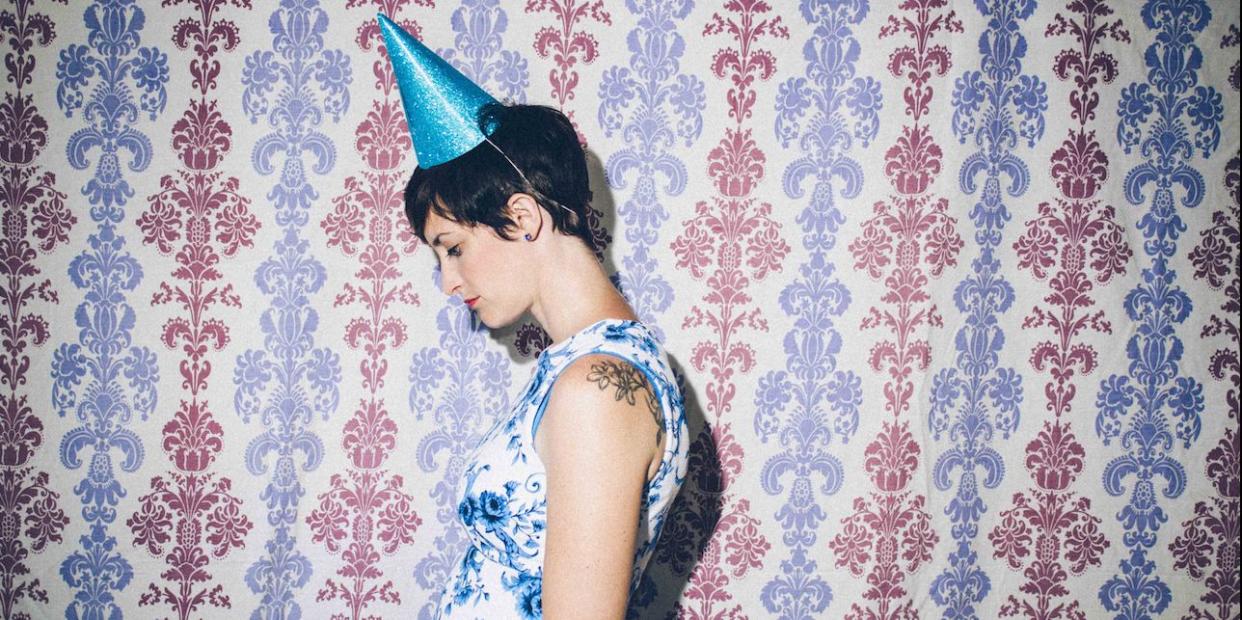
The Festival That Showed Me The Power Of Belonging
By Zakiya Dalila Harris, author of The Other Black Girl
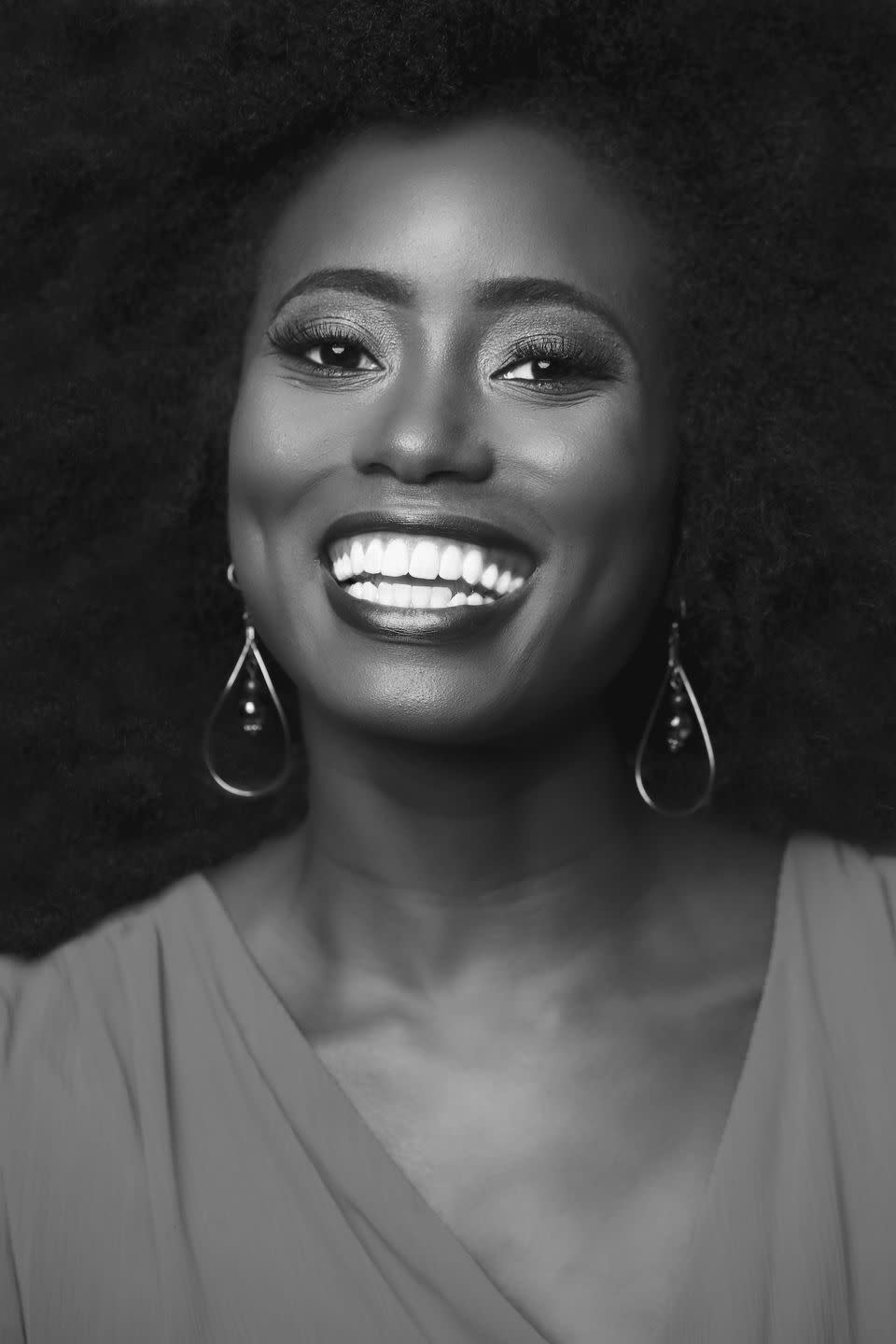
I don’t belong here. The words flickered in my brain as I eyed the other folks waiting in the long line that snaked around Brooklyn’s Commodore Barry Park. Like me, they were itching to get through security so they could link up with their friends, imbibe some summer drinks and dance to live music. Unlike me, their outfits were far more bohemian.
I eyed my own cold-shoulder blouse regretfully. It was my first time attending Afropunk. While I’d read that the annual outdoor festival celebrated Black artists throughout the diaspora, including musicians, designers and dancers, I hadn’t gotten the memo about painting my teeny-weeny ’fro with pastels or showing off generous portions of skin. I wished I’d worn a crop top on that particularly sticky August day, and wished even more that I’d met up with my friends beforehand. Many of them were just in Brooklyn for the weekend; our mini college reunion would fly by in the blink of an eye. We should’ve all been waiting in line together, taking selfies, catching up on each other’s lives and soaking up all the Black joy that Afropunk had promised us.

And, by the time the festival rolled around, I needed that joy. Badly. Because while many other areas of my life were on the up in 2016 – I’d just started my dream job in publishing, finished my creative writing masters and even started dating a new guy – my soul was in serious need of soothing. Just the previous month, I’d seen what had happened to Philando Castile in Minnesota and Alton Sterling in Louisiana. The pain I felt from those deaths, and so much other violent racism in the months and years before that, had started to chip away at my soul day after day. While I’d gotten the ‘race talk’ as a kid, nothing could have possibly prepared 23-year-old me for the anguish I’d been feeling and, at times, the hopelessness.
So when the long line finally spilled me into the eclectic crowd of Afropunkers, out went my nerves and in came a nourishing, soulful surge of Black life. Everywhere I looked, strangers were complimenting each other’s outfits, rubbing elbows on the main lawn without complaint and gushing to each other about their love for Janelle Monae in the queue for the toilets. Strangers became kinfolk, if only for the weekend.
Blogging and losing myself in writers such as Ralph Ellison, James Baldwin and W. E. B. Du Bois in the comfort of my tiny bedroom helped me process what I saw in the news. But sometimes, that’s not enough. Sometimes you just need to remind yourself of the beauty in merely existing. To turn off your brain and shake it out to George Clinton in a sea of other Black strangers who have experienced the same kind of pain, and crave the same kind of release. To soak up every drop of joy that living in The Now has to offer, because no one knows what lives in The Later. And soak it up, I did.
The Other Black Girl is out now
The Wallflower At The Orgy
By Taylor Jenkins Reid, author of Malibu Rising

The Chateau Marmont on LA’s Sunset Boulevard is iconic. Over the years, a thousand scandals have gone down there. It has a lowkey, dimly lit allure – you’d barely know it’s a hotel. It’s the coolest place, where celebrities let loose. And the afterparty for one of the first movies I worked on in casting, straight out of college, was held there.
I arrived with colleagues, nervous I wouldn’t be let in, but we were ushered inside. We were young and ambitious and we worked hard. The nights were always late, then you turned around the next morning and went right back to work.
There were famous people everywhere. There was an underage actress getting served at the bar in one corner. And a TV actor who everyone loves in another, bombed out of his mind. I was 23 and underdressed for the event. I was in a top that cost £35 ($50), standing near one of our movie’s lead actors, who was wearing thousands of dollars of designer labels. It was at that moment that I felt like what Nora Ephron describes as ‘the wallflower at the orgy’.
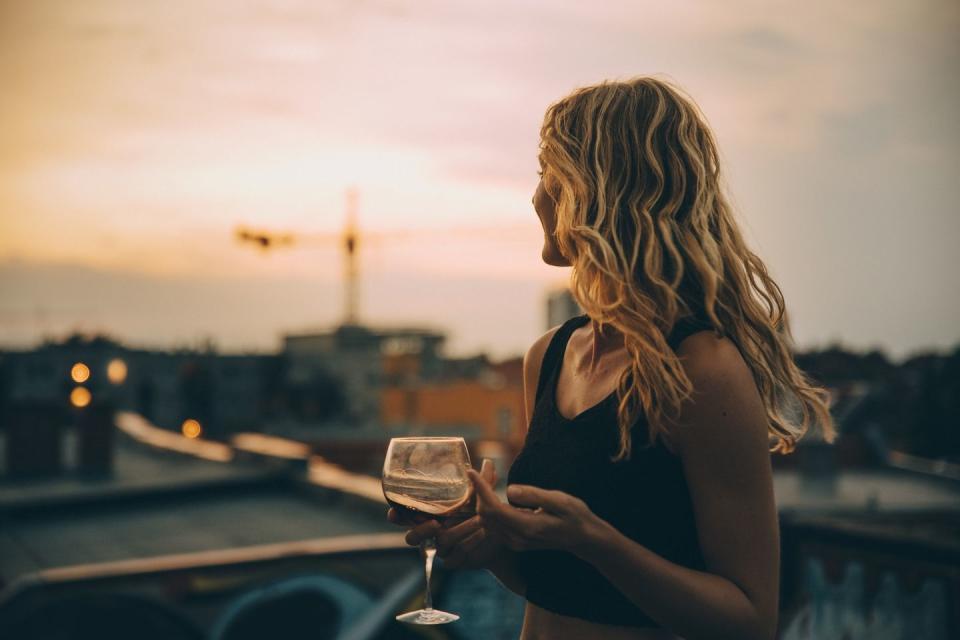
The next morning, I reflected: Boy, that was fun. But this isn’t where I’m supposed to be. Do I want to go to parties like that? Absolutely. Do I want it to be my job, so that I’m at the party assessing who it would be smart for me to talk to in order to secure my next career move?
Within a year, I’d quit my job. The party made me realise that I was more interested in writing about Hollywood than being in it. So, I began working at a school to finance my writing. I was there for just over a year, before I sold my first novel.
The world of ‘fame’ is so juicy, it’s informed much of my writing. Now my books have been adapted by Hollywood, I’ve come full circle and I’m invited to those parties again. I still don’t like being the centre of attention, but you’ll find me on the edge of the action, taking it all in.
Malibu Rising is out now
The Fancy-Dress Party That Launched My Career
By Laura Lippman, author of Dream Girl
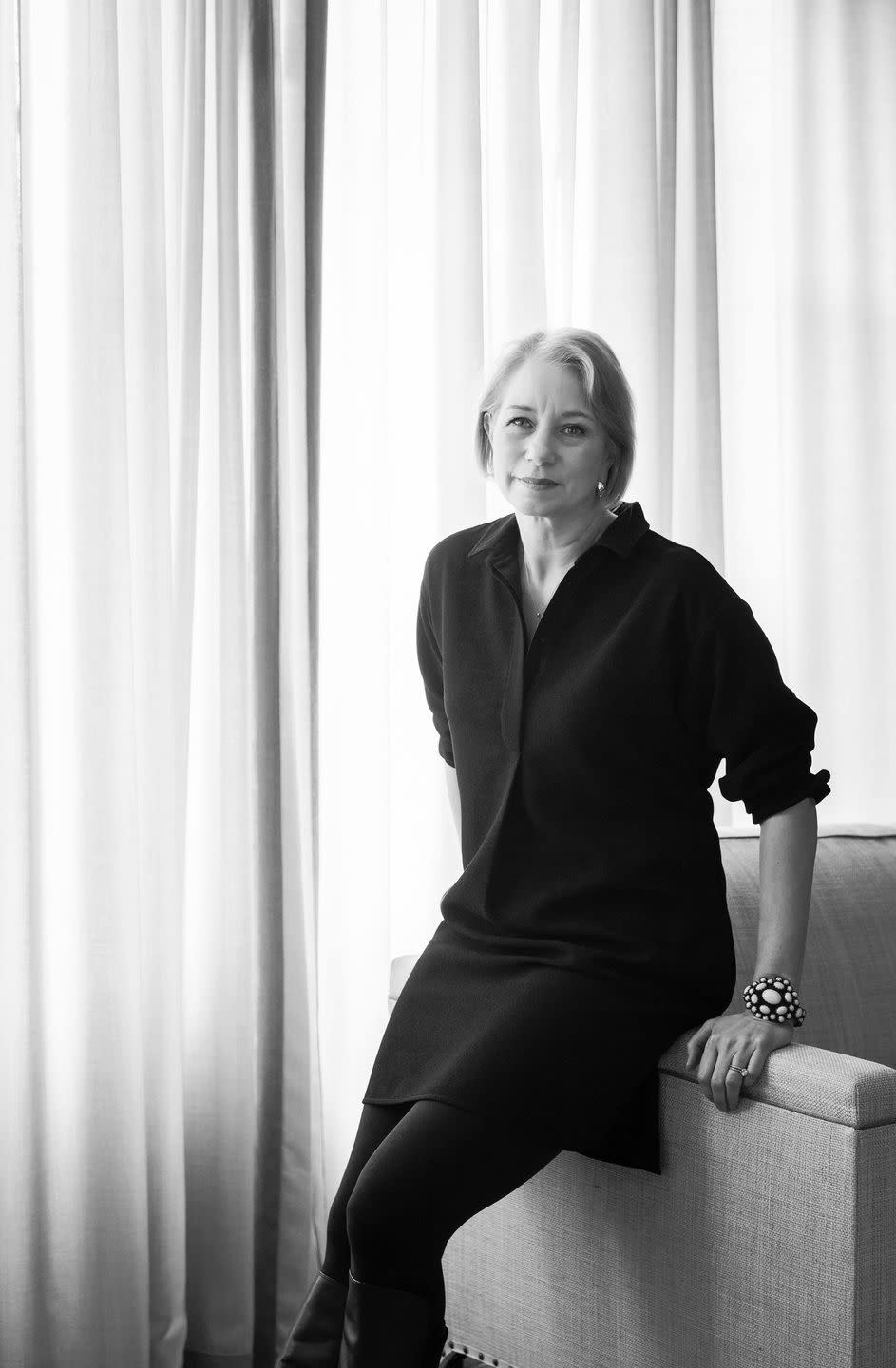
I was mildly grumpy about being invited to a 1970s-themed party in 1991. I was 32, and the theme felt vaguely mocking. As someone who went to actual parties as a student in the late 1970s, I wasn’t ready to see my real life become someone else’s ironic theme. Also, it was an hour’s drive.
But I went because I adored the host, a magnet for interesting people. (Case in point, I watched a man in platform shoes and a gold jumpsuit moving enthusiastically to Kung Fu Fighting. He was a reporter for The Washington Post, who was beginning to make a name for himself. That name happened to be Malcolm Gladwell.)
But Gladwell did not provide my tipping point. That came from a conversation with a woman named Michele Slung, one of the few other guests who looked old enough to drink in the 1970s. When she heard that I was a reporter at The Evening Sun, she asked abruptly: ‘Have you thought about writing erotica?’
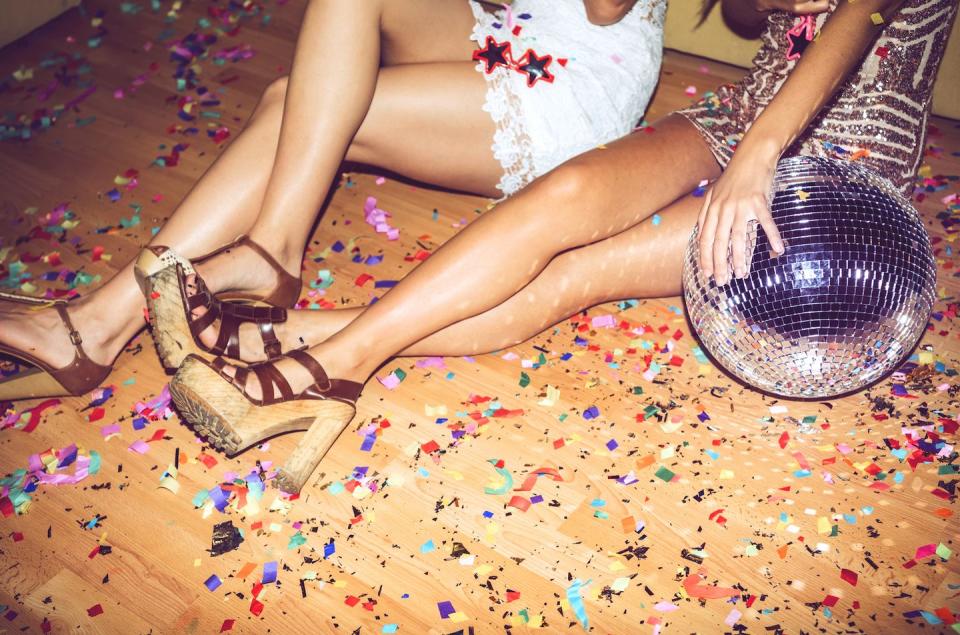
I wanted to say: ‘Whoa, I’m a simple lass from Baltimore.’ I wrote about poverty and homelessness, which was the paper’s unsexiest beat, though I adored it. But I listened. She had a contract to publish a book of ‘classy’ erotic stories. She was having trouble getting submissions. If I wrote an acceptable story, she’d pay me £1,000 ($1,500). But she needed it within three months.
Deadlines, money – I understood those. And I secretly dreamed of being a novelist. So I wrote a story, using a friend of a friend’s anecdote about an impromptu threesome in which the woman abandoned the bed to sleep and the men woke up holding hands. And Michele had virtually no edits. She not only liked my story, she told me that she thought I could be a novelist and pledged to read anything I might write.
She also imparted an important lesson, which made my life as a novelist possible. Michele told me that women, socially conditioned to be modest, often need the ‘mask of genre’ when they begin writing. Having written an erotic story under a pseudonym, I turned to a life of crime (writing).
Three years later, I sent her my first novel. She found me an agent, Vicky Bijur, who still represents me, 25 novels later.
To this day, I tell women to talk to other women at parties. And keep an open mind about what constitutes a ‘party’ – a group DM can change your life if you’re willing to engage. Online support led to my first book of essays. And, if you see Malcolm Gladwell dancing to disco classics, you’ll know it’s a good omen.
Dream Girl is out in July
The Work Party From Hell
By Eva Verde, author of Lives Like Mine

It was 2003 and, after a summer flitting between my bedsit and Matt’s flat in Essex, love hovered between us as a possibility. I was therefore thrilled to be my boyfriend’s plus-one on his work ‘jolly’ to Barcelona. Though the trip was peppered with work, for two 5-star nights and a decadent dinner party, I’d cope. I was keen to meet his colleagues, but mostly I wanted to make him proud.
Thanking God for my overdraft, I bought a bright suitcase and a tiny bag from a knock-off designer outlet. Unused to fancy events, borrowed Gucci mules eased my nerves and desire to impress strangers. I oozed glamour. Mariah has nothing on me, I thought.
But, at the airport, there was instant hostility from Matt’s colleagues’ wives. Their smirks mocked my new suitcase, which I realised, mortifyingly, was EasyJet orange. On landing, Matt was whisked to a meeting, but I wasn’t invited shopping nor to lunch. Instead, I wandered the hot streets and steeled myself to buy an ice cream, using actual Spanish. The act of self-sufficiency restored my excitement, and I realised I was pleased to have swerved a day with the Mean Girls.
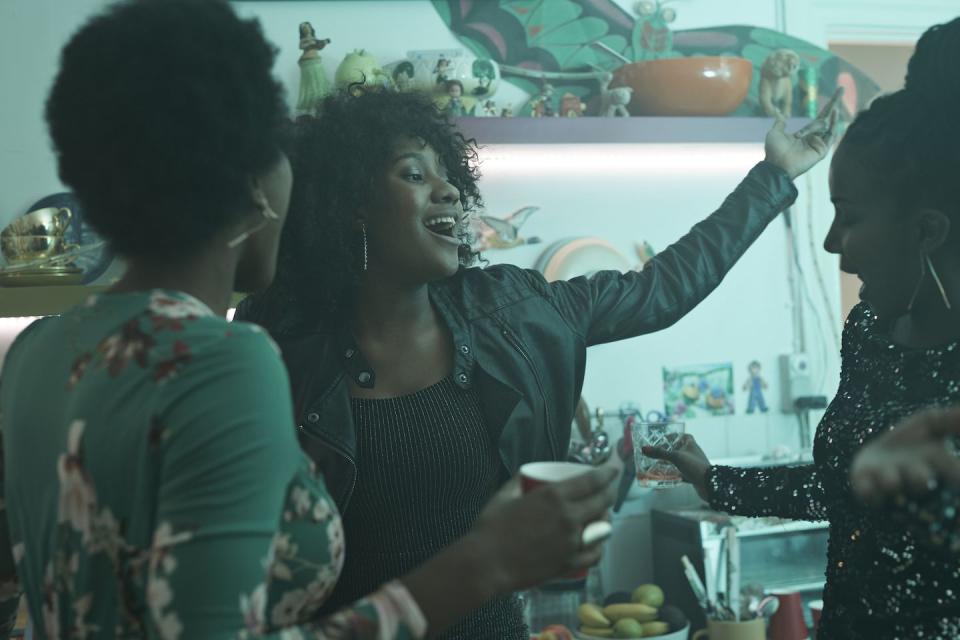
Matt and I arrived at the event that evening holding hands, which felt secure and romantic. It was a dazzling affair; correct to dress up for. We entered the glitzy restaurant, and a waiter dipped his head as I selected a flute of champagne. A pyramid of whitebait was presented, deep-fried curls in tempura. I copied how Matt ate them, performing the same trick when the oysters appeared, entirely new to me, as well.
The boss’s son came up to me, talking of Matt’s ex, casting her as a goddess, and me into the shadow of myself beneath this false glamour: the girl in a damp bedsit who worked minimum-wage admin, never fitting in. When he asked if I could still taste the ex on Matt’s body, my starry night blurred with hurt. Matt’s rage – hot expletives in defence of me – was an instant comfort.
I learnt about the pre-trip office gossip. How, on good days, I was Matt’s ‘cafe-con-leche hottie’, less-acceptable phrases on the bad ones. Later, after secret tears in the posh loo, the boss groped my bum, said I needed someone with class – someone wealthy, like him. But class is more than hierarchy and the boxes that we’re assigned by society. Excess was everywhere, but class was nowhere. I was worth more. And if Matt thought so, too, we had to act.
It felt symbolic to abandon my new clothes at the hotel – apart from the Gucci mules, of course. We bought flights home, lighter by the second. Matt resigned, his decision cementing all that I hoped would come of us. We moved in together, Matt started his own business. By standing up for me at that car-crash of a party, Matt fast-tracked our love and intentions. He was respectful and supportive then and now, many years and dogs later, he still is.
Lives Like Mine is out now
Bonfire Of The Vanities
By Kevin Kwan, author of Crazy Rich Asians

The crowd was so chic, I immediately felt underdressed in my jeans and blazer. I was used to art-school parties downtown where everyone had paint splattered on them. But this was an uptown, jet-set crowd. There was a woman in head-to-toe vintage Pucci, and a girl who looked like a young Catherine Deneuve wearing an Hermès scarf tied as a turban. I was 21 and had just moved to New York from Texas to study photography at Parsons School of Design. A friend had invited me to a party being thrown by someone she’d gone to school with. I was very excited since this woman – an heiress – had a reputation that preceded her. I didn’t know the particular etiquette of this entitled crowd, but I was raised never to arrive at a party empty-handed, so I took a bottle of wine and a gift. Of course, I was the only one to take anything, so I stuck out like a sore thumb. My gifts were whisked away by a staff member and never seen again.
It was a penthouse apartment in one of Manhattan’s best buildings and so vast that, when you entered the front door, you couldn’t even see where the room ended. It felt like I was stepping into the pages of a Dominick Dunne novel, everyone giving double-cheeked kisses and speaking French and Italian. When the hostess’ mother turned up wearing a full-length champagne chinchilla coat and dripping with diamonds it was like the Queen of Versailles had arrived.
I observed the impossibly beautiful guests, thinking, Where have these people come from? What’s their story? So I dove in and began chatting. I told the Hermès-turbaned girl I was studying photography, and she responded by saying she’d just bought an original Cartier-Bresson. There were a few iconic grande dames in attendance who were fixtures of the New York party crowd. One legendary lady in her 80s told everyone how she once smuggled drugs into the country.

I didn’t get much chance to speak to my friend who’d invited me, but I noticed she seemed to be doing a lot of the party managing. She was ducking into the kitchen, making sure food and drinks were both flowing, and I even saw her clearing plates.
The party ended at around 3am. I went home, so buzzed and happy. My flatmates were waiting up, excited to hear about my evening, so I gave them the whole download. But the big ‘aha’ moment came a few days later when my friend revealed what was really going on.
The heiress was flat broke. She had somehow squandered her inheritance and was reduced to borrowing money from my friend, who had funded the whole event. Here was this supposed millionaire, surrounded by her glamorous ‘friends’, who had no idea what was really going on. It was all about desperately keeping up appearances. This party turned out to be something of an awakening for me – it was the first time that I saw beyond the fantasy, beyond the gloss, and realised that very often things are not at all what they seem.
Love, Sex And A Tablecloth Dress
By Sophia Money-Coutts, author of The Wish List

My 18-year-old self wasn’t my best self. I was nearly 6ft, my hair was orange after a DIY dyeing accident when I tried to go blonde, and I was carrying a bit of toast weight, having spent my final school year skipping PE to eat bacon sandwiches. And I’d been at an all-girls’ boarding school for seven years, which meant that my physical insecurities were compounded by boys remaining an alien species. I’d kissed a few but not much more than that.
There was one who seemed less untouchable than others, but only because of proximity. He lived near my mum and we hung out when I was at home for the holidays. Harry was three years older than me and deeply glamorous: he had floppy hair, smoked, wanted to be a fighter pilot and lived in a gothic castle. We watched films and he played music: The Beatles, Bowie. I’d only half-listen, because I was too busy dreaming about being his wife. I was convinced that we were destined to be together and I merely had to bide my time before he realised it, too.
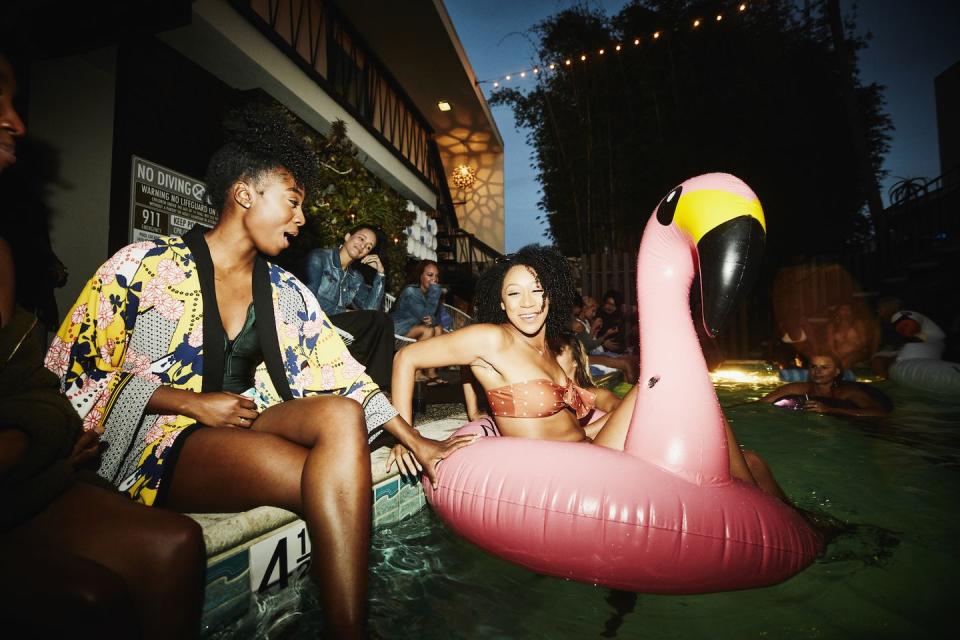
When an invitation for his 21st birthday party arrived (dress code: white tie), I spent months deliberating what to wear.
My mum made me a skirt in the end. Run up on her sewing machine and fashioned from raspberry-coloured gingham, it pouffed around my legs like a ballgown. Up top: a strappy white top from Oasis and a strapless bra that dug into my back. It was only later I realised I went to the party dressed as a tablecloth.
On the night, I was terrified. The party was on the lawn in front of the castle, with a hot-air balloon ferrying guests over it as a ride, plus a marquee in which all 300 guests sat for dinner. The first disappointment was being seated far away from Harry with no one I knew, increasingly uncomfortable in my bra. The second was that Harry seemed to be getting on suspiciously well with the blonde he was sitting beside. She was an It girl I’d seen in Tatler, wearing a slinky black dress that looked like a negligee. I wasn’t even sure there was a bra underneath it. She had the hair of Rapunzel and the body of a Greek nymph.
As they continued to draw closer at their table, and then on the dance floor, I became steadily more miserable, drank too much wine and sought solace in Harry’s friend, Edmund. An hour later, I ended up snogging him in retaliation, only to be discovered by Harry’s mother, my hand fighting to get under Edmund’s kilt. The humiliation was complete.
Harry teased me about Edmund for years. But I remain grateful for that diabolical evening. It taught me that love can be brutal and, just because I’d dreamed of something happening, in that moony way of teenage girls, it didn’t mean it would in real life. Luckily, my friendship with Harry has endured in a way it may not have if we’d done something as fumbling teenagers. Love can take many forms, after all. (I also learned to think harder about party outfits.)
The Wish List is out July 22
Room For Romance
By Phoebe Luckhurst, author of The Lock In
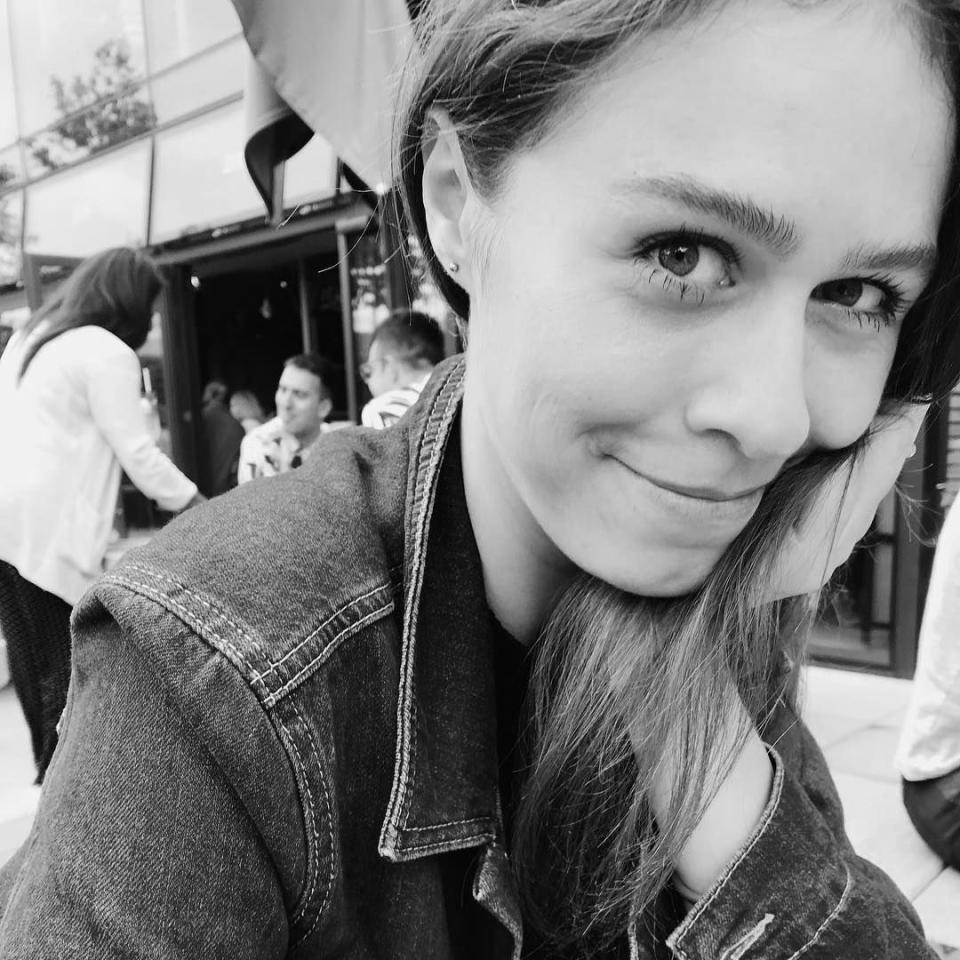
There were people everywhere. Perching on kitchen counters among sticky bottles of half-drunk spirits; crowded on the doorstep cadging cigarettes; in my (tiny) room, tipping beer onto the carpet. The bass made the walls tremble.
In other words, I was co-hosting a spectacular party in our rented house in north London. But I was merely going through the motions. The occasion was my best friend’s leaving party and, while I’d been putting a brave face on it – Amazing job! Paris! Of course, I’ll visit! All the time! – I was quietly devastated. We’d been friends for seven years, housemates for three – and he’d kept my head above water during a tricky few years: a bad break-up cueing up a period of anxiety and predictable self-destruction. I was terrified that, with him gone, I’d fall apart again.
Not to mention I was dreading having a stranger living with us, and everyone I’d met on SpareRoom seemed to be a sociopath, or at least had an antisocial hobby. (The trombone – really?)
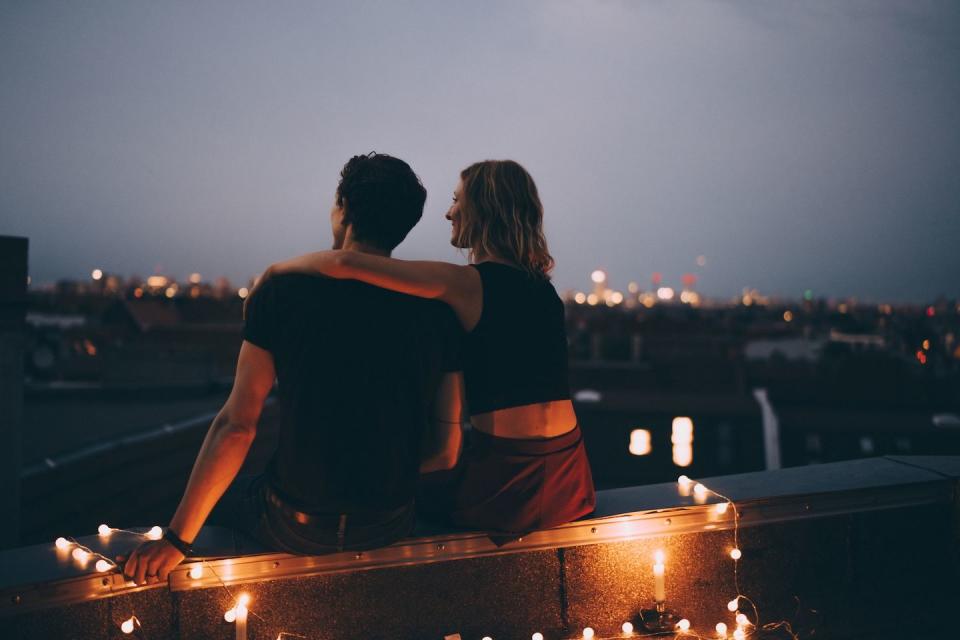
But by 1am, against the odds, I had an answer to one problem. A university acquaintance had ended up at the party who’d just moved back to London. He didn’t want to live with his parents, so – over tequila shots – we sorted it: he’d move in. At least we (sort of) knew him. And he didn’t play a brass instrument. I checked.
Two weeks later, he joined the house; after two months, we were dating; more than four-and-a-half years on, we’re still together (though we moved out of the shared house into our own flat). Sometimes we remark how easily we could have missed each other (maybe I’d have fallen for trombone guy?).
Of all the things I’ve mourned in this locked-down year of no parties, it’s that sense of possibility I miss the most. That charge, that hopeful excitement – as you add eyeliner flicks and take a swig of pre-party G&T – that you might be about to have one of the most momentous nights of all time. Parties mean alchemy, magic, the kismet of spontaneous encounters that can change your life. Especially if you add tequila shots.
The Lock In is out now
The Book Launch That Remade Me
By Elizabeth Day, author of Magpie
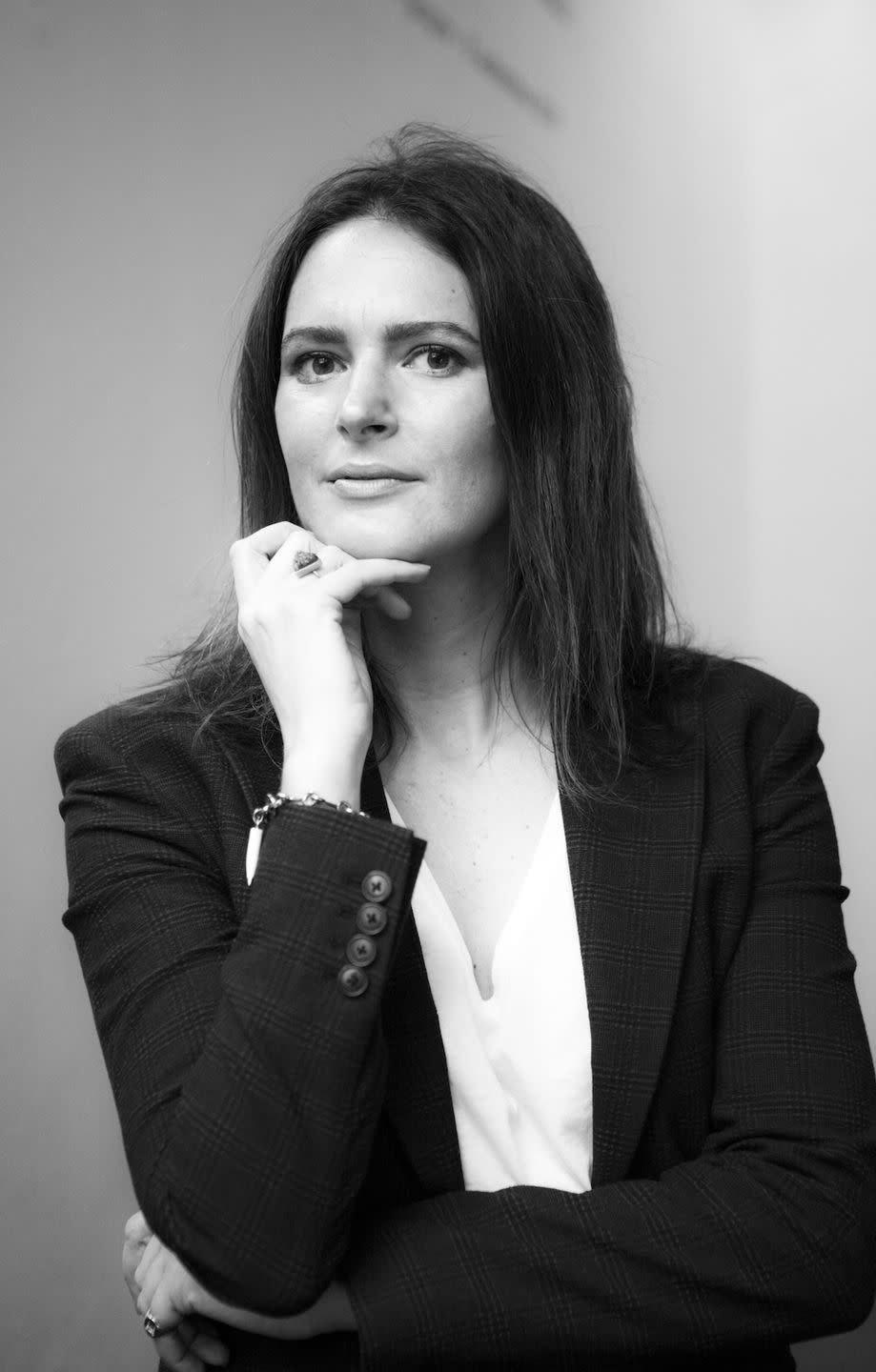
Three weeks before my 39th birthday, another relationship ended. I was staring down the barrel of my 40s – divorced, single, with no children – having had three miscarriages and failed IVF.
In the months that followed, thinking about failure and vulnerability was the genesis of my How To Fail podcast, which gathered momentum like I’d never imagined and landed me my first non-fiction book deal. The launch party for that book, on a bright spring day a year later, was the moment the strands of my life felt like they were coming back together.
I’d met the man who is now my husband on my first and last Hinge date some months before and, although it was my fifth book launch, it was the first where I’d felt so fully myself. I wasn’t pretending anymore – in work or love.

My outfit embodied this new phase of life. After scouring the internet, I ordered a one-shouldered midnight-blue velvet dress with feathers, by Magda Butrym at Farfetch. It was so unlike me, yet felt so truthful. It wasn’t what I thought I should wear, or a sensible purchase. It was a dress I wanted. A make-up artist slicked back my hair and gave me the smokiest of eyes. It was dramatic and I felt good – even if my father commented that I looked like a goth.
I was one of the first to arrive at the private room I’d hired in Soho’s Groucho Club. It was special to watch every person integral to my life’s journey crammed under one loving roof. Old friends sipped Aperol Spritzes with new colleagues, my family nattered with former editors and there were even podcast guests such as campaigner Gina Miller and poet Charly Cox. One hundred smiling faces brimmed with pride. It was like a wedding, without the hassle of getting married.
As Etta James played, my new boyfriend Justin walked in with a massive bunch of flowers, beaming with joy on my behalf. It was the first time he’d met many of my friends and he slipped into my friendship groups with ease. Predictably, my playlist geared up to 1990s hip-hop for the afterparty, where we ate pizza, got drunk and danced until the early hours.
The book marked a watershed moment in my career when it quickly became a bestseller. But the party also signified my emergence from dark times; I was finally accepted and understood for who I really am. And that’s a person who wants to wear feathers and velvet. Although my life hasn’t panned out how I thought it would, it turned out to be so much better.
Magpie is out September 2
You Might Also Like


